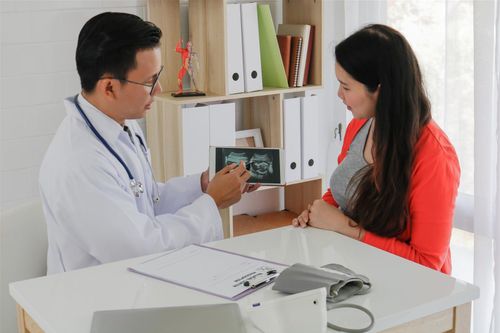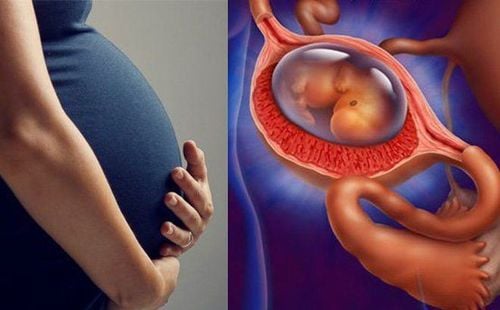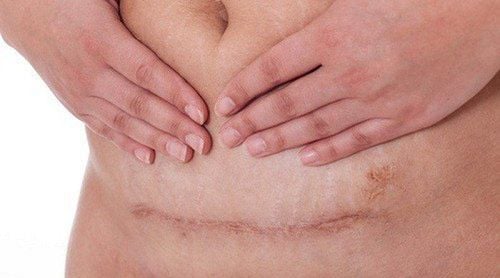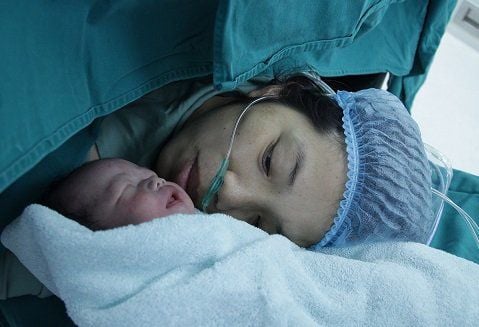This is an automatically translated article.
The article was professionally consulted by Specialist Doctor I Le Hong Lien - Department of Obstetrics and Gynecology - Vinmec Central Park International General Hospital.A neural tube defect is a defect in the brain and spine of a fetus that does not develop normally. Statistics show that 1 in 1000 babies has a neural tube defect. This ratio is quite rare, but we cannot be subjective with this defect in the fetus. Neural tube defects in the fetus need to be detected early to have the right treatment.
1. What is a neural tube defect?
The neural tube is a structural part of the embryo that develops during the period of fetal formation and development. This embryonic structure will develop into the baby's brain and spine. The neural tube is initially just a small band of tissue that folds inward into a tube shape by day 28 of pregnancy. And if this phenomenon does not happen at this time, the neural tube will not be closed and folded and cause neural tube defects leading to brain and spinal defects in the fetus in the development of the fetus. after.Trắc nghiệm: Xét nghiệm Triple test là gì? Cần thực hiện khi nào?
Triple test và một trong những xét nghiệm sàng lọc trước sinh quan trọng nhất trong thai kỳ, giúp chẩn đoán nguy cơ dị tật thai nhi, là cơ sở để các bác sĩ chỉ định thực hiện các xét nghiệm sàng lọc xâm lấn như chọc ối, sinh thiết gai nhau. Theo dõi bài viết sau để biết Triple test là gì và nên thực hiện khi nào?2. Types of neural tube defects
There are two main types of neural tube defects: spina bifida (spinal cleft) and anencephaly.Spinal bifida When this part of the neural tube that forms the spine and spinal cord does not close completely, causing damage to the development of the spinal cord inside. The fetus may have paralysis of the nerves below the damaged spinal cord, and at the same time make it difficult to move, even unable to move. The fetus will also have problems related to increased pressure in the skull, uncontrolled urination, some children die soon after menstruation because of severe spinal split.
Anencephaly This is a very serious neural tube defect. The fetal brain is barely developing. Most fetuses with neural tube defects, which are craniofacial defects, are stillborn in utero or die shortly after menstruation.

3. What causes neural tube defects?
Because the neural tube forms from the 28th day of the fetus, most pregnant women don't even know they are pregnant. The neural tube needs to be supplied with a large amount of folic acid so that the fetus can develop fully, and close completely. Thus, pregnant women do not provide enough folic acid for the fetus, which will cause the neural tube to not develop fully, leading to malformations.4. Early detection of neural tube defects
To detect the earliest neural tube defects in the fetus, pregnant women should perform methods such as:The first ultrasound at 8-14 weeks to identify problems with spinal cord injuries and fetal skull is associated with cleft palate or spinal malformations. Testing for malformations at 19-20 weeks helps to identify problems related to the baby's physical health, when a spinal cord defect test will be detected. Testing AFP levels at 16-20 weeks of pregnancy is an essential test to detect neural tube defects effectively. At this time of pregnancy, the AFP test allows to detect up to 98% of cases of neural tube defects and many other birth defects of the fetus. Thereby, the doctor will direct the appropriate treatment.
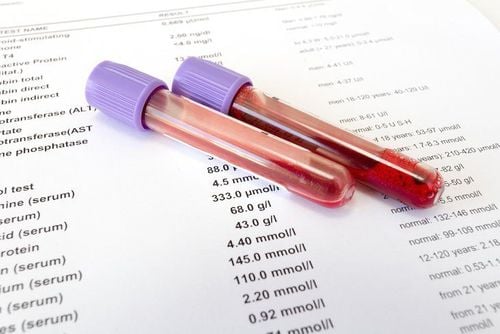
5. How to prevent neural tube defects?
Getting enough folic acid before and during pregnancy is the most effective way to prevent neural tube defects. In this way, pregnant women can reduce the rate of neural tube defects in the fetus by 50-70%. Therefore, women of pregnancy need to take folic acid supplements as prescribed and guided by their doctor.Besides, making a nutritious diet is indispensable. It is necessary to add foods rich in folic acid such as broccoli, broccoli, soybeans, red beans, black beans and citrus fruits and juices, cattle and poultry livers.
Vinmec International General Hospital offers a Package Maternity Care Program for pregnant women right from the first months of pregnancy with a full range of antenatal care visits, periodical 3D and 4D ultrasounds and routine tests to ensure that the mother is healthy and the fetus is developing comprehensively.
Specialist I Le Hong Lien has been an obstetrician-gynecologist at Vinmec Central Park International Hospital since November 2016. Doctor Lien has over 10 years of experience as a radiologist in the Department of Ultrasound at the leading hospital in the field of obstetrics and gynecology in the South - Tu Du Hospital.
Please dial HOTLINE for more information or register for an appointment HERE. Download MyVinmec app to make appointments faster and to manage your bookings easily.







